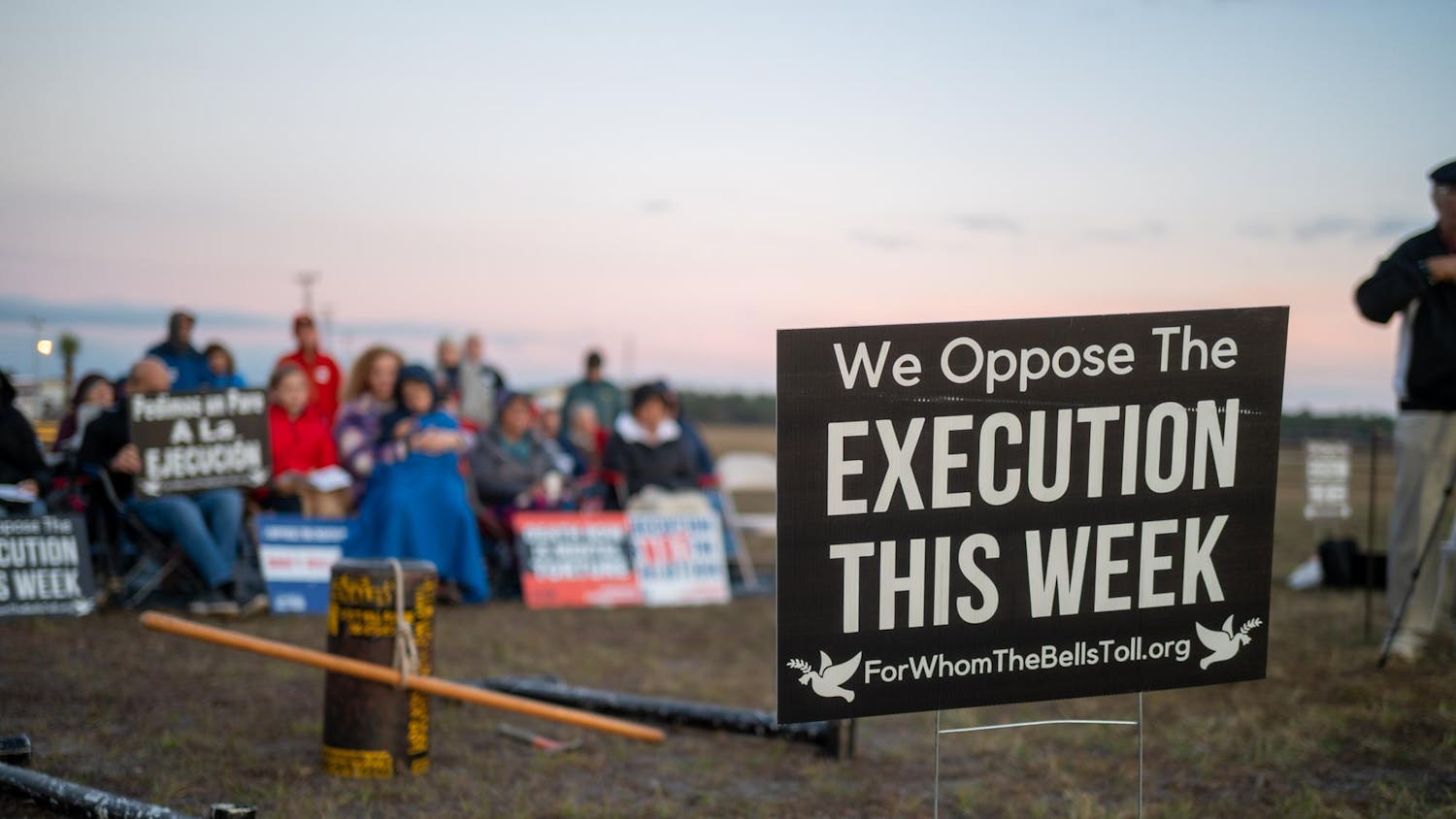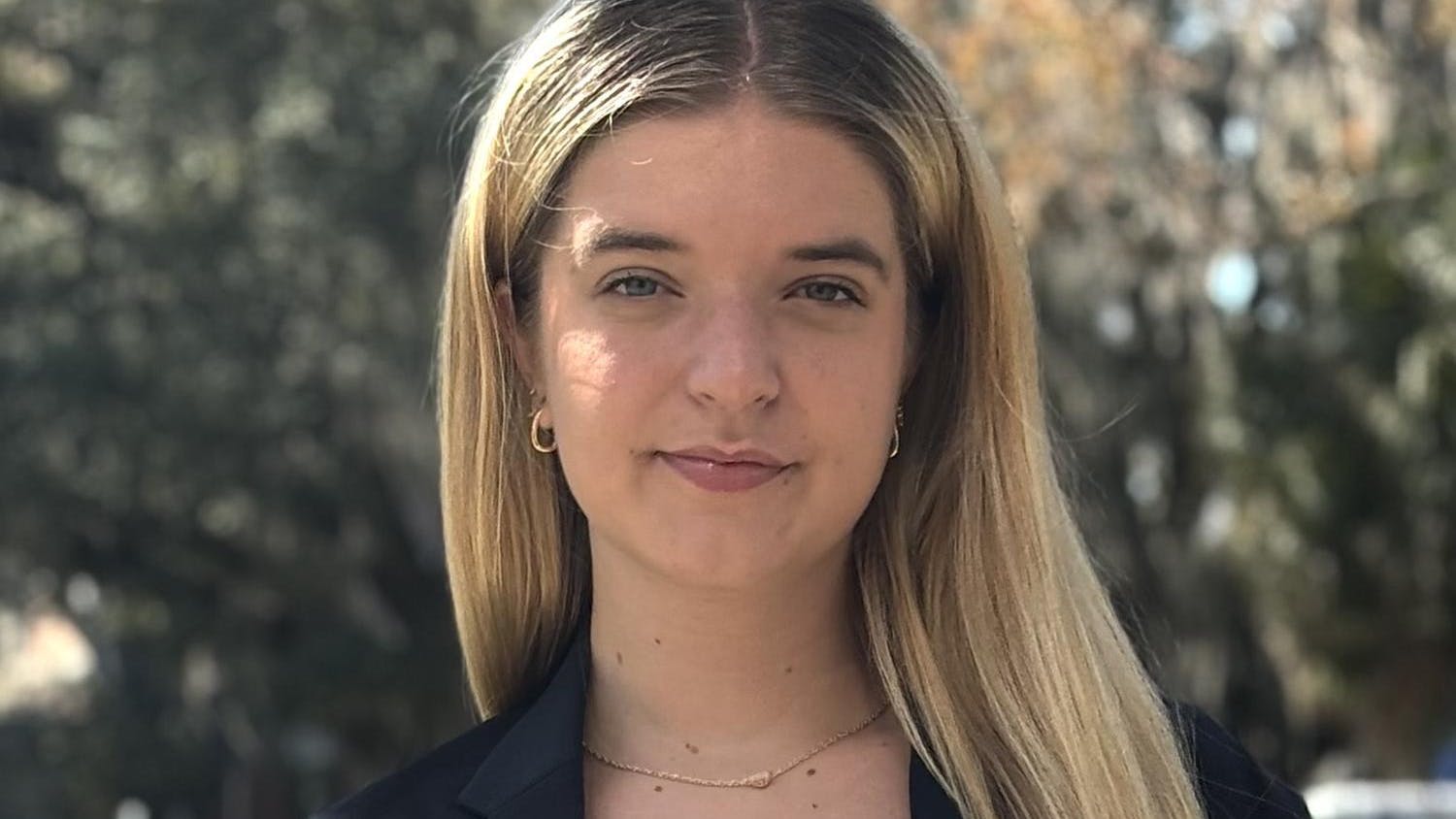Florida’s Chancellor of the State University System, Ray Rodrigues, issued a memorandum directing state university system presidents to “deactivate” the registration of National Students for Justice in Palestine. UF President Ben Sasse complied.
These actions raise an important First Amendment issue worthy of further exploration.
The statutory basis for the deactivation order is Florida Statute § 775.33(3) (2023), which makes it a felony to “knowingly provide material support … to a designated foreign terrorist organization.”
In this case, the Chancellor has, “in consultation with Governor DeSantis,” ordered deactivation based on the student groups’ alleged “material support” for Hamas and the despicable atrocities it perpetrated on Israelis and others on Oct. 7. These atrocities included the murders of roughly 1,400 people, including infants, rapes, hostage-taking and other war crimes.
The SJP’s alleged act of material support is a statement issued by the national student organization, in which they express support for Hamas’ attack against the “Zionist enemy” as part of a toolkit for a “day of resistance” on college campuses. Hamas’ founding documents call for the complete destruction of Israel and the establishment of a theocratic state; they also deploy antisemitic propaganda to further these aims.
However, the basis for the Chancellor’s assertion that the SJP student groups on Florida campuses provide material support to Hamas is a specific statement made by the national organization.
In advising student chapters how to frame their “messaging,” the statement asserts: “We as Palestinian students in exile are PART of this movement, not in solidarity with this movement… All of our efforts continue the work and resistance of Palestinians on the ground.” The statement further suggests that student-group messaging should include the hashtag “#operationalaqsaflood.”
Does the statement constitute material support of terrorism? And if so, is it attributable to the Florida student organizations?
One must look to foundational First Amendment principles to answer the first question. State universities create campus forums for student groups to engage in expression. Universities cannot exclude student groups from the forums they have established simply because the universities find the students’ speech distasteful. Indeed, a core principle of the First Amendment is that government actors may not ban speech simply because the speech is offensive, hateful or even because it advocates violence.
As the Supreme Court said in a 1972 decision involving a racist and antisemitic speaker advocating violence at a Ku Klux Klan rally, "the mere abstract teaching … of the moral propriety or even moral necessity for a resort to force and violence is not the same as preparing a group for violent action and steeling it to such action."
However, a First Amendment line is crossed when an individual or group knowingly provides “material support” for terrorist actions. Can speech be material support?
The U.S. Supreme Court addressed that issue in a 2010 case called Holder v. Humanitarian Law Project, which involved a non-profit group that wanted to train groups that the Secretary of State had designated as terrorists. The non-profit group wanted to train the terrorist groups about international law and negotiation strategy to enable them to use peaceful and lawful means to resolve their grievances. However, a federal statute defined material support for terrorism to include such training, even though it involved speech. The non-profit group challenged the law on First Amendment grounds.
The Supreme Court held that the First Amendment allowed the federal government to criminalize such training “when coordinated with, or at the direction of” foreign terrorist organizations. The Court found that the statute served a compelling government interest in protecting national security, specifically noting that the statute did not bar “independent advocacy that may be viewed as promoting the [terrorist] group’s legitimacy.”
In other words, the Court drew an important distinction between independently spreading propaganda supporting a terrorist group and coordinating with a terrorist group to help it get its message out.
How does one apply these provisions to the SJP statement? The Florida statute defines material support to include “any property, tangible or intangible, or service, including … training [and] expert advice or assistance.” The definition does not seem to encompass mere speech supporting activities of a terrorist organization.
Even if the statute applies to SJP’s statement, the First Amendment does not allow the state to penalize students for mere advocacy of Hamas’ activities. Florida appears to be “deactivating” the SJP (though with leave to re-form into a new group disassociated from the national chapter) based predominantly on its ideological alignment with Hamas.
The Supreme Court has not adequately defined the line between independent advocacy and coordination, but the proposed “coordination” in Holder involved actual interaction and direct communication between the advocacy group and the terrorist organizations.
This type of interaction does not exist just because the national SJP calls itself “PART of the movement” or says that it supports what Hamas does through its protest activities Further, it is not clear that the Florida chapters of SJP agree with the statement, though one might argue it is fair to ascribe it to them unless they disclaim it. Nonetheless, without more evidence of their unlawful intent or direct interaction with Hamas, treating them as guilty by association is probably a bridge too far for First Amendment purposes.
Lyrissa Lidsky is the Raymond & Miriam Ehrlich Chair in U.S. Constitutional Law at UF Levin College of Law.






